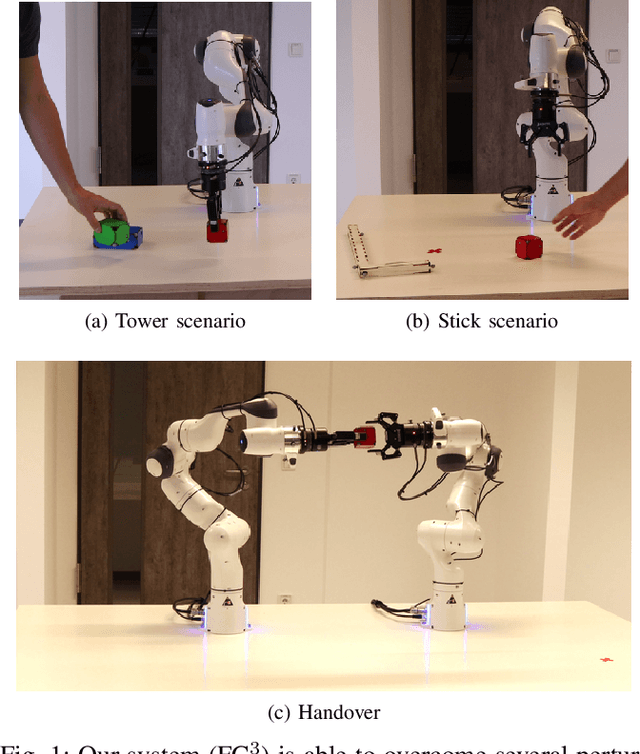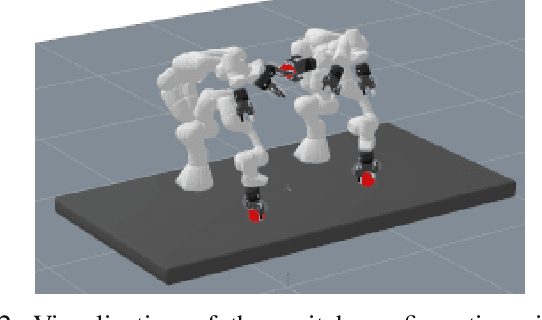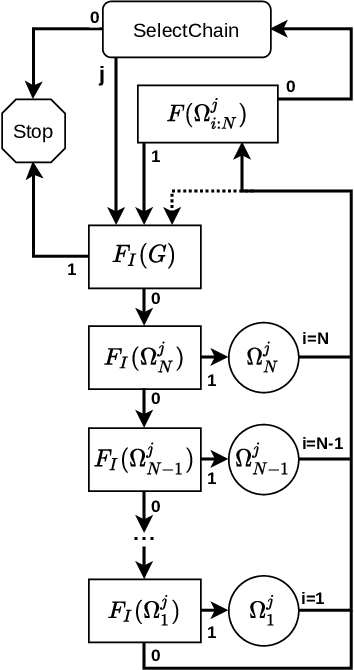FC$^3$: Feasibility-Based Control Chain Coordination
Paper and Code
May 09, 2022



Hierarchical coordination of controllers often uses symbolic state representations that fully abstract their underlying low-level controllers, treating them as "black boxes" to the symbolic action abstraction. This paper proposes a framework to realize robust behavior, which we call Feasibility-based Control Chain Coordination (FC$^3$). Our controllers expose the geometric features and constraints they operate on. Based on this, FC$^3$ can reason over the controllers' feasibility and their sequence feasibility. For a given task, FC$^3$ first automatically constructs a library of potential controller chains using a symbolic action tree, which is then used to coordinate controllers in a chain, evaluate task feasibility, as well as switching between controller chains if necessary. In several real-world experiments we demonstrate FC$^3$'s robustness and awareness of the task's feasibility through its own actions and gradual responses to different interferences.
 Add to Chrome
Add to Chrome Add to Firefox
Add to Firefox Add to Edge
Add to Edge